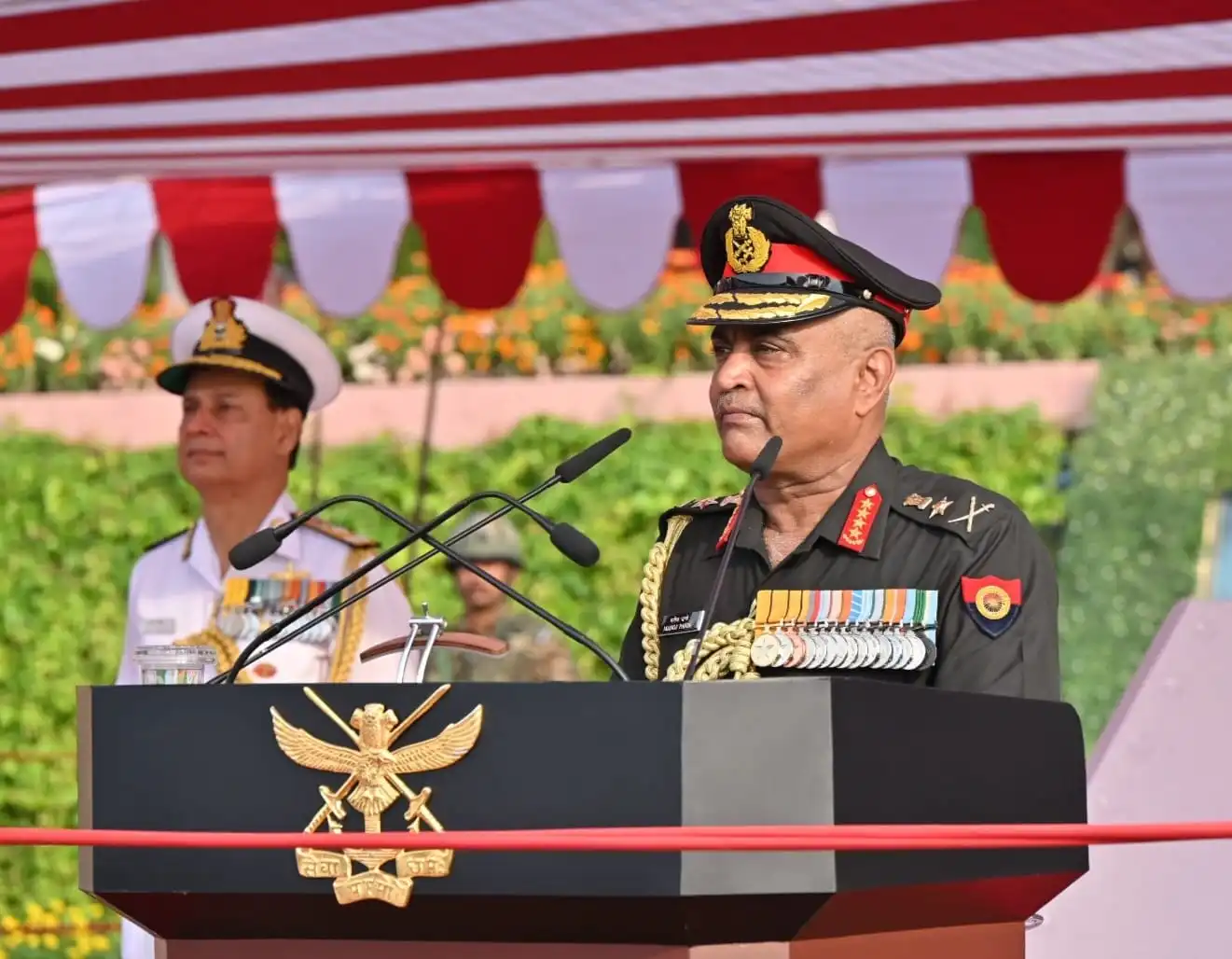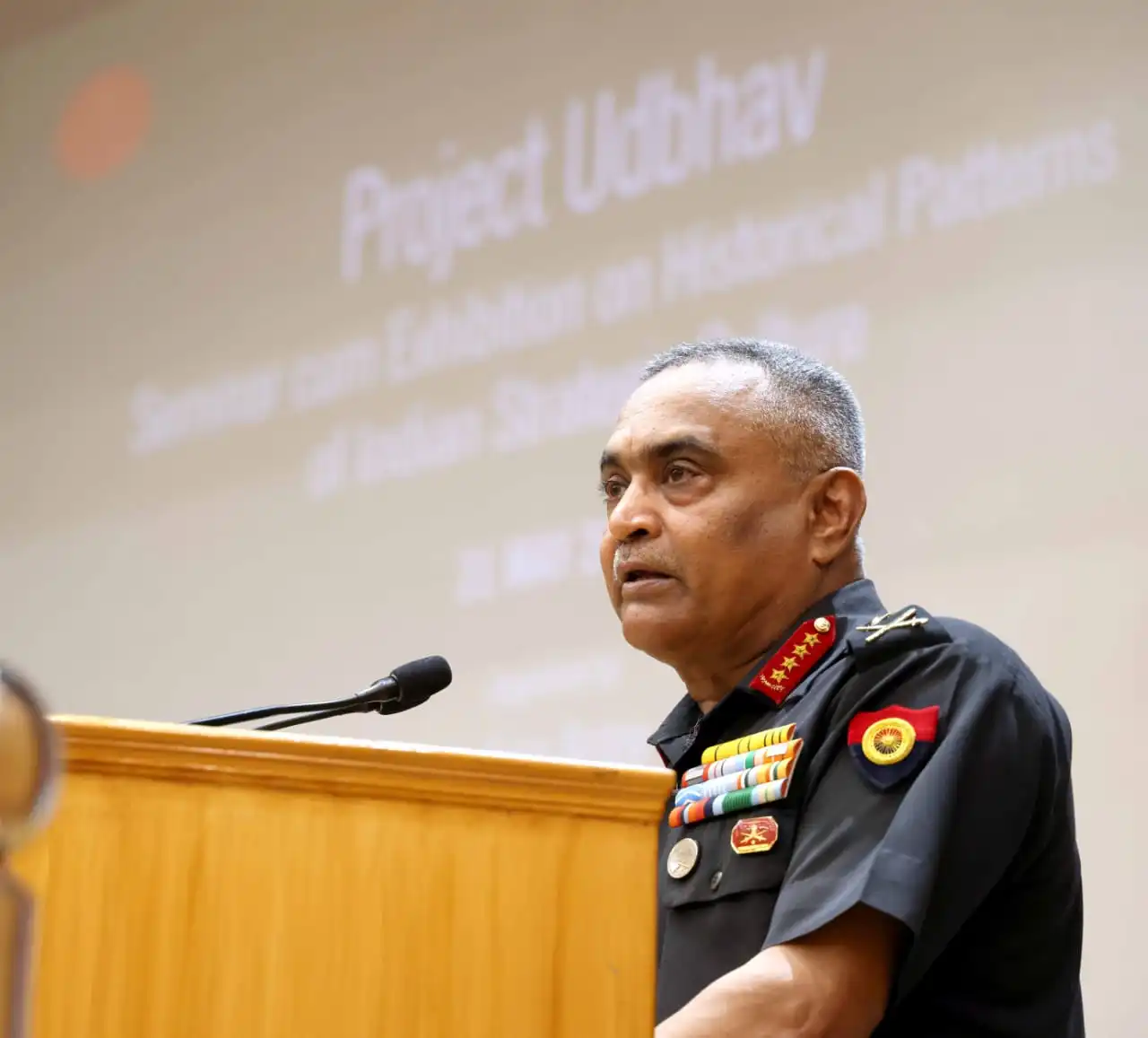

In an unusual and significant move, the Indian government extended the tenure of General Manoj Pande, the Chief of the Army Staff, by one month on Sunday. This extension, which pushes his retirement date from May 31 to June 30, 2024, comes amidst ongoing parliamentary elections and leaves the appointment of the new Army chief to the new government.
“The Defence Ministry has announced a notable extension for General Manoj Pande, the Chief of the Army Staff. In an exceptional decision by the Appointments Committee of Cabinet, Gen Pande’s tenure has been extended for an additional month. This extension surpasses his expected retirement date of May 31, 2024, and will now see him continue his distinguished service until June 30, 2024.”
Click here for Press release https://pib.gov.in/PressReleasePage.aspx?PRID=2021712
This decision has created a buzz within the armed forces, sparking discussions about the futures of Lt Gen Upendra Dwivedi, the Vice Chief of the Army, and Lt Gen A K Singh, the Southern Army commander. Both are set to retire on June 30 and are also course-mates, adding another layer of speculation about the next chief’s selection.
About Current Army Chief
Gen Manoj Pande took over as the Army Chief on April 30, 2022. He was commissioned in December 1982 into the Corps of Engineers (The Bombay Sappers) and previously served as the Vice Chief of the Army Staff. Known for his distinguished career, he also commanded the Andaman and Nicobar Command, India’s only tri-services command.
The decision to extend Army Chief Gen Pande’s tenure is reminiscent of a similar situation nearly 50 years ago. In 1974, the Indira Gandhi government extended the tenure of Gen G G Bewoor by one year, allegedly to prevent a popular officer, Lt Gen Prem Bhagat, from becoming the Army Chief. This move led to Lt Gen Bhagat retiring without reaching the top post.
Such last-minute extensions are rare. Historically, the services of legendary Army chief Sam Manekshaw were extended by six months in 1972 “in recognition of outstanding services to the Armed Forces and the nation.” Manekshaw was later promoted to Field Marshal in 1973.
Currently, Lt Gen M V Suchindra Kumar, who commands the Northern Army, is the third senior-most officer in the 1.3 million-strong Indian Army. With the elections ongoing and results expected on June 4, the decision to extend Gen Pande’s service could be seen as a measure to maintain stability during a critical period.
In past instances, the Model Code of Conduct during elections has not prevented the announcement of new service chiefs. Legal provisions allow for seeking the Election Commission’s permission for such top appointments, which have been utilized before.
Lt Gen Upendra Dwivedi, now the senior-most official after Gen Pande, has extensive operational experience along the borders with China and Pakistan. He assumed the role of Vice Chief in February, succeeding Lt Gen M V Suchindra Kumar. Following him is Lt Gen Ajay Kumar Singh, the Southern Army Commander.

Both Lt Gen Dwivedi and Lt Gen Singh are potential candidates for the top post. The new government at the Centre will have the choice to include them in the final decision on the next Army chief.
In 1991, a similar situation occurred when former IAF Vice Chief N C Suri succeeded S K Mehra as the Air Chief, even though both were retiring on the same day. More recently, in 2019, then IAF Vice-Chief RKS Bhaduaria was appointed as the Air Chief just days before his retirement, succeeding Air Chief Marshal B S Dhanoa. General Pande’s extension highlights the government’s aim to ensure continuity and stability in military leadership during a crucial period of national elections. The move also underscores the importance of experienced leadership





